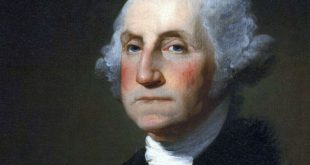The favorite leftist tool for the attack on our nation’s founding is that slavery was sanctioned. They argue that the founders disregarded the promises of our Declaration of Independence “that all men are created equal, that they are endowed by their Creator with certain unalienable Rights, that among these are Life, Liberty and the pursuit of Happiness.” These very ignorant people, both in and out of academia, want us to believe that slavery is unusual, as historian Kenneth Stampp suggested in his book, “Peculiar Institution: Slavery in the Ante-Bellum South.” But slavery is by no means peculiar, odd, unusual or unique to the U.S.
As University of Nebraska-Lincoln political science professor David P. Forsythe wrote in his book, “The Globalist,” “The fact remained that at the beginning of the nineteenth century an estimated three-quarters of all people alive were trapped in bondage against their will either in some form of slavery or serfdom.” Slavery was common among ancient peoples — Egyptians, Babylonians, Assyrians, Hittites, Greeks, Persians, Armenians and many others. Large numbers of Christians were enslaved during the Ottoman wars in Europe. White slaves were common in Europe from the Dark Ages to the Middle Ages. It was only during the 17th century that the Atlantic slave trade began with Europeans assisted by Arabs and Africans.
Slavery is one of the most horrible injustices. It posed such a moral dilemma at our 1787 Constitutional Convention that it threatened to scuttle the attempt to create a union between the 13 colonies. Let’s look at some of the debate. George Washington, in a letter to Pennsylvania delegate Robert Morris, wrote, “There is not a man living who wishes more sincerely than I do, to see a plan adopted for the abolition of it.” In a Constitutional Convention speech, James Madison said, “We have seen the mere distinction of color made in the most enlightened period of time, a ground of the most oppressive dominion ever exercised by man over man.” In James Madison’s records of the Convention he wrote, “(The Convention) thought it wrong to admit in the Constitution the idea that there could be property in men.”
John Jay, in a letter to R. Lushington: “It is much to be wished that slavery may be abolished. The honour of the States, as well as justice and humanity, in my opinion, loudly call upon them to emancipate these unhappy people. To contend for our own liberty, and to deny that blessing to others, involves an inconsistency not to be excused.” Patrick Henry said, “I believe a time will come when an opportunity will be offered to abolish this lamentable evil.” George Mason said, “The augmentation of slaves weakens the states; and such a trade is diabolical in itself, and disgraceful to mankind.”
Northern delegates to the Convention, and others who opposed slavery, wanted to count only free people of each state to determine representation in the House of Representatives and the Electoral College. Southern delegates wanted to count slaves just as any other person. That would have given slave states greater representation in the House and the Electoral College. If slaveholding states could not have counted slaves at all, the Constitution would not have been ratified and there would not be a union. The compromise was for slaves to be counted as three-fifths of a person when deciding representation in the House of Representatives and Electoral College.
My question for those who condemn the Three-Fifths Compromise is: Would blacks have been better off if northern convention delegates stuck to their guns, not compromising, and a union had never been formed? To get a union, the northern delegates begrudgingly accepted slavery. Abolitionist Frederick Douglass understood the compromise, saying that the three-fifths clause was “a downright disability laid upon the slaveholding states” that deprived them of “two-fifths of their natural basis of representation.”
Here’s my hypothesis about people who use slavery to trash the founders: They have contempt for our constitutional guarantees of liberty. Slavery is merely a convenient moral posturing tool they use in their attempt to reduce respect for our Constitution.
COPYRIGHT 2019 CREATORS.COM
 Walter E. Williams is a professor of economics at George Mason University.
Walter E. Williams is a professor of economics at George Mason University.
The views expressed in opinion articles are solely those of the author and are not necessarily either shared or endorsed by Black Community News.
 Black Community News News and Commentary for Christians
Black Community News News and Commentary for Christians




Clear and concise, thank you for the ammunition to fight the SJWs.
Dr. Williams makes an excellent point about slavery. Not even Jesus could condemn the sin because in His time it was the order of the day.
True – yet Paul, using Jesus’ teachings, managed to undermine its foundations, by reminding Philemon that his slave Onesimus was actually his “brother in Christ.”
Only one thing I’d disagree with here – in most parts of the world, slavery wasn’t based on race. In classical times, people could even sell themselves into slavery to pay off their debts, and also earn enough money to buy back their freedom.
In the USA, slavery was almost entirely race-based, hence the events in “Twelve Years a Slave” which depicts a freedman being kidnapped and re-enslaved because he was black. In Huckleberry Finn, Mark Twain has Huck’s despicable father ranting and raving about seeing a free black man and asking why he wasn’t being “put up at auction and sold.”
So to that extent, American slavery was indeed a “peculiar” institution.
Many people (including myself) would not be sure of what Professor Williams is saying. Sorry it is still over my head, I need it in more street terms, please. * Example: There are many statements from the founding fathers which prove that they did not approve of slavery. So to say that they did, puts the burden of proof on you…. etc.
Indeed George Washington spoke against slavery. Hidden slave quarters were discovered at Mt. Vernon 225 years later.
“The favorite leftist tool for the attack on our nation’s founding is that slavery was sanctioned. [V]ery ignorant people, both in and out of academia, want us to believe that slavery is unusual . . .”
Williams goes on to explain that slavery is a major practice in humankind’s psychological evolution. I think Williams is mistaken to attribute racial conflict to ignorance. Marxist movements founded on Alinsky-style “victimization” (AMO) know well the falsehoods in their organizers’ work. Leftists are canny and cunning rather than ignorant. By labelling them “ignorant,” Williams aids their cause.
Williams is neither journalist nor reporter. He introduces the American issue: “It was only during the 17th century that the Atlantic slave trade began with Europeans assisted by Arabs and Africans.”
However, Williams skips the details of Africa’s process for producing its commodity: African slaves. Developing a commodity trade in human beings is strong evidence against the African and Arab branches of human evolution. Their urges for reform do not excuse European irresponsibility in the Atlantic slave trade. In this market there were producer, trader, and purchaser, each with commensurate guilt.
To examine this evidence that human evolution takes different geo-ethnic paths perhaps involves religion. Religion seems a struggle to develop mystery or reason or both in bemusing competition. For example, early evidence that exposure to the sun could be deadly seemed mysterious. Today, people spend hours in the sun for amusement with proper protection.
Many ancient cultures thought that the sun is God. Some advocated human sacrifice to bargain with God for favor. Both false mystery and erroneous reason ultimately surrender to the-objective-truth, the ineluctable evidence by which truth is measured. All the cultures with erroneous principles may reform and tend to do so in time—as their evolution path unfolds. Slowly, mystery yields to discovery.
A religious particular from Europe is that Christianity, originating in Jewish theism in opposition to Arab geopolitical dominance, was imported to Rome. Emperor Constantine established Christianity to assimilate the pagan culture he ruled. No man or group of men can withstand the challenge of canonizing the word of God, but the Catholic Church took and maintains the hubris to claim that dreadful task. One of many of the Church’s woeful errors was adopting as New Testament “scripture” the idea that slavery was God’s plan for atonement of the sins of slave ancestors. In other words, if you are enslaved, it is hereditary, and you must accept your lot in life.
It would not surprise me if both some Arabs and some Africans consider the slave-master relationship valid when the slaves are Europeans. In other words, God is colored and ultimately intends slavery for white people. For all I know, that’s what compels African-American Christianity. My preferential theism is “God is red” because of indigenous appreciation for mystery grounded in actual reality.
In some aspects, the Old Testament, or Jewish Bible, is less mysterious than the New Testament. For example, even 4,000 years ago Jews thought naming God was woeful arrogance and still hold to that practice. Perhaps the Jews evolved to advocate mutual, comprehensive safety and security, hereafter “safe-keeping.” We label “civic” the ethnic groups who want statutory justice (statutory law that ineluctably results in just enforcement). Ethnic groups that simply want to dominate civic groups are dissidents to human responsibility.
Returning now to Christianity’s role in “conquering” North America, the British Empire became dominant in this land, and colonial-English traditions still bemuse the U.S. Constitution’s proposition: the U.S. preamble. Ignoring the modifiers the U.S. preamble’s proposition is: Willing citizens collaborate for 5 public provisions—Union, Justice, Tranquility, defense, and Welfare—so as to encourage responsible human liberty to living individuals.
The mistakes made by our ancestors are important to living citizens only as evidence on which we may avoid woe. Fellow citizens who choose to collaborate under the U.S. preamble’s proposition using the-objective-truth (actual reality) practice individual happiness with civic integrity.
Good reading. The Holy Roman Empire, as we’ve learned, was neither “holy” nor “Roman.” The “sanctioning” of slavery should be evident by the flouting of Article 1, Sec. 9 of the U.S. Constitution. As a nation founded on Judeo-Christian principles, we would later pay a dear price for our arrogance before God.